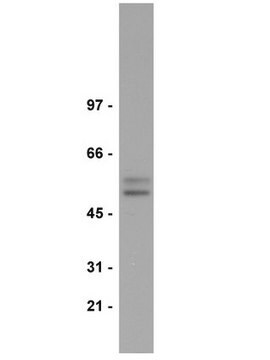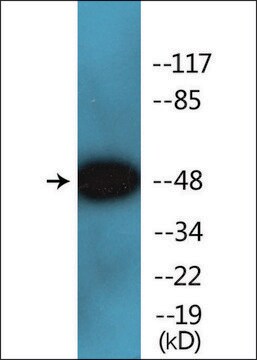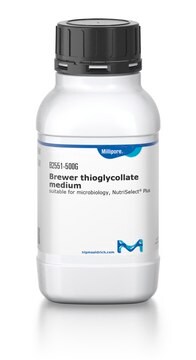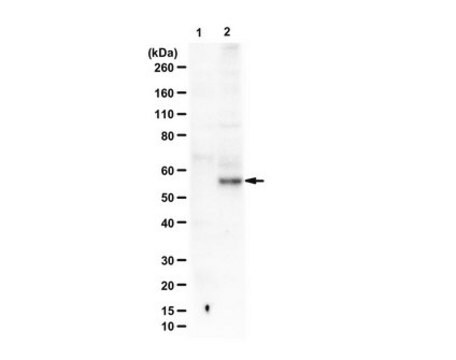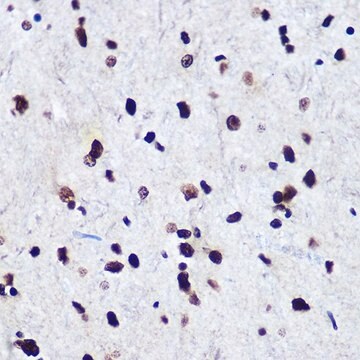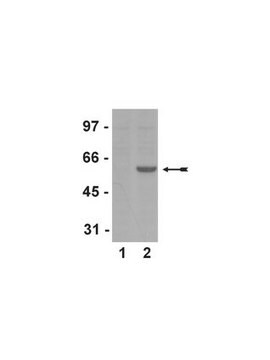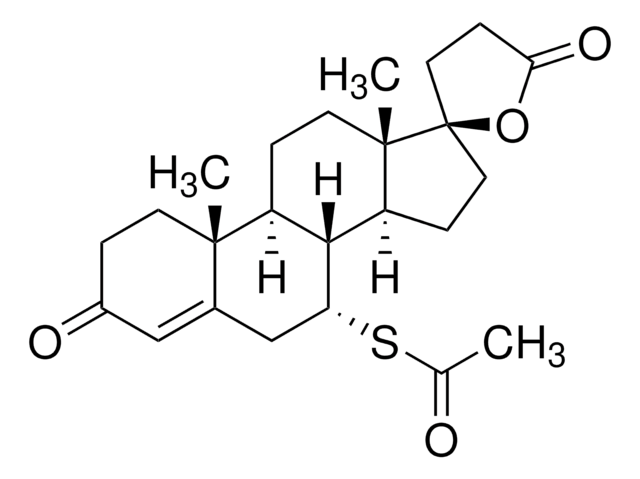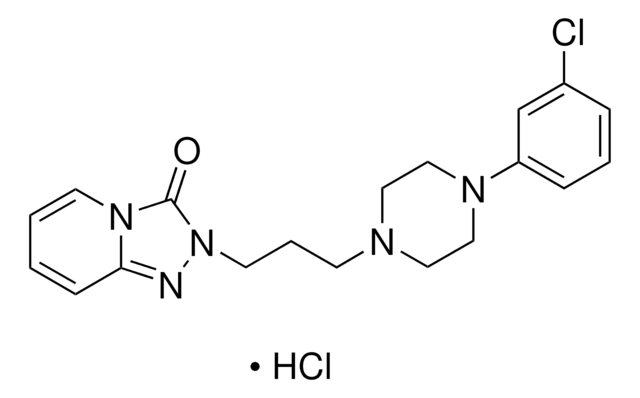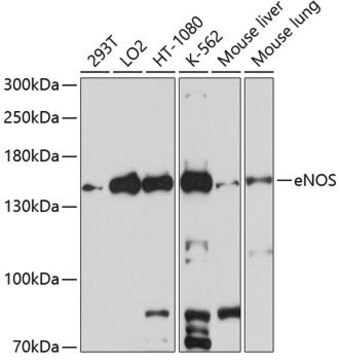04-914
Anti-Smad2/3 Antibody, clone C4T, rabbit monoclonal
culture supernatant, clone C4T, from rabbit
别名:
Deletion target in pancreatic carcinoma 4, MAD, mothers against decapentaplegic homolog 4, MAD, mothers against decapentaplegic homolog 4 (Drosophila), Mothers against DPP homolog 4, SMAD 4, SMAD family member 4, SMAD, mothers against DPP homolog 4, SMAD
登录查看公司和协议定价
所有图片(1)
About This Item
分類程式碼代碼:
12352203
eCl@ss:
32160702
NACRES:
NA.41
推荐产品
生物源
rabbit
品質等級
抗體表格
culture supernatant
抗體產品種類
primary antibodies
無性繁殖
C4T, monoclonal
物種活性
mouse, rat, human
技術
western blot: suitable
NCBI登錄號
UniProt登錄號
運輸包裝
dry ice
目標翻譯後修改
unmodified
基因資訊
human ... SMAD2(4087)
一般說明
Smad proteins are regulators of transcription which transduce signals from TGFβ Receptors. Smad proteins homotrimerize, and when activated, two distinct homotrimers assemble into a heterosextamer. Smad proteins fall into three classes. The receptor-regulated Smad proteins, Smad 1, 2, 3, 5, and 9 couple to specific receptors and are phosphorylated by those receptors. Phosphorylated receptor-regulated Smad proteins then bind to a co-Smad, such as Smad4/DPC4, and the complex moves to the nucleus where it associates with FAST-1 to stimulate target gene transcription. A third class of Smad proteins is the inhibitory group of Smad 6, 7, 8. Smad proteins have Mad-homology domains 1 and 2 (MH1 and MH2). MH1 domains are involved in DNA binding, while MH2 domains function in homotrimerization, receptor interaction and phosphorylation. Smad 4 mutations are frequently found in cancer, all of which cluster to the MH1 and MH2 domains of the protein. Those in the MH2 domain affect the ability of the protein to homotrimerize. The phosphorylation of Smad proteins is the regulatory signal in their activation, and can be monitored by the use of phosphorylation state-specific antibodies.
特異性
Predicted to cross-react with mouse and rat based on conservation of immunogen sequence.
Recognizes Smad2, Mr 55-60 kDa and Smad3, Mr 50 kDa.
免疫原
Epitope: a.a. 186-273
Fusion protein corresponding to amino acids 186-273 of human Smad2.
應用
Research Category
Signaling
Signaling
Research Sub Category
Transcription Factors
Transcription Factors
Use Anti-Smad2/3 Antibody, clone C4T (Rabbit Monoclonal Antibody) validated in WB to detect Smad2/3 also known as Deletion target in pancreatic carcinoma 4, mothers against decapentaplegic homolog 4.
品質
Evaluated by Western Blot on L6 lysates.
Western Blotting Analysis: A 1:2,000 dilution of this antibody detected Smad2/3 in L6 cell lysate.
Western Blotting Analysis: A 1:2,000 dilution of this antibody detected Smad2/3 in L6 cell lysate.
標靶描述
~50-60 kDa
聯結
Replaces: 05-914
外觀
Cultured supernantant containing 0.05% sodium azide.
儲存和穩定性
Stable for 1 year at -20ºC from date of receipt.
Handling Recommendations: Upon receipt, and prior to removing the cap, centrifuge the vial and gently mix the solution. Aliquot into microcentrifuge tubes and store at -20°C. Avoid repeated freeze/thaw cycles, which may damage IgG and affect product performance.
Handling Recommendations: Upon receipt, and prior to removing the cap, centrifuge the vial and gently mix the solution. Aliquot into microcentrifuge tubes and store at -20°C. Avoid repeated freeze/thaw cycles, which may damage IgG and affect product performance.
分析報告
Control
RIPA lysates from L6 cells
RIPA lysates from L6 cells
其他說明
Concentration: Please refer to the Certificate of Analysis for the lot-specific concentration.
免責聲明
Unless otherwise stated in our catalog or other company documentation accompanying the product(s), our products are intended for research use only and are not to be used for any other purpose, which includes but is not limited to, unauthorized commercial uses, in vitro diagnostic uses, ex vivo or in vivo therapeutic uses or any type of consumption or application to humans or animals.
未找到合适的产品?
试试我们的产品选型工具.
儲存類別代碼
12 - Non Combustible Liquids
水污染物質分類(WGK)
WGK 1
閃點(°F)
Not applicable
閃點(°C)
Not applicable
Catherine Koch et al.
Molecular therapy. Methods & clinical development, 17, 1178-1189 (2020-06-10)
Myotubular myopathy, also called X-linked centronuclear myopathy (XL-CNM), is a severe congenital disease targeted for therapeutic trials. To date, biomarkers to monitor disease progression and therapy efficacy are lacking. The Mtm1-/y mouse is a faithful model for XL-CNM, due to
我们的科学家团队拥有各种研究领域经验,包括生命科学、材料科学、化学合成、色谱、分析及许多其他领域.
联系技术服务部门